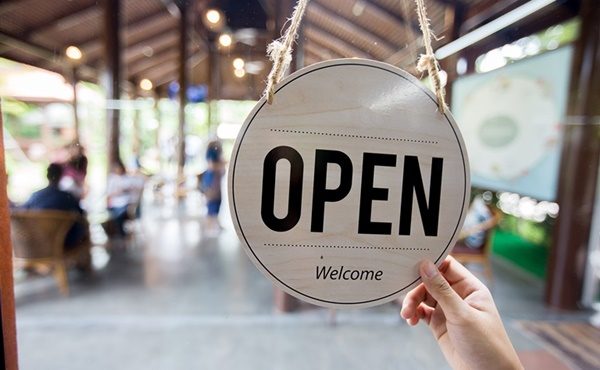Even before the Covid-19 pandemic, Australia’s small businesses were feeling stressed by the bushfire devastation and every day cost pressures.
Data from the Sensis Business Index which measures small business confidence shows a massive drop in confidence in just two weeks as the reality of Coronavirus hit Australia. Confidence fell from positive 40 on 10 March to negative 13 on 24 March.
“Australia’s small businesses were feeling the squeeze before the impact of the Coronavirus hit,” says Sensis CEO John Allan.
“But the massive fall in confidence in just a matter of 14 days, while not a surprise, was the fastest drop in the 25-year history of the survey.”
The first survey respondents were in early March but as time progressed the stark reality of Covid-19 hit Australia’s small businesses quickly with sentiment changing mid-survey. At the start of March, 29.7 per cent of SMBs had seen no impact on their business with 35.6 per cent expecting to see an impact in the coming months.
By the third week of March, 32 per cent had seen a severe impact, 35 per cent had seen some impact and 26 per cent were expecting an impact.
“The extraordinary speed of the change in confidence is not something we’ve ever witnessed before; it was as if a speed train had hit the majority of small-medium businesses in Australia with 47 per cent surveyed now worried about the future” says Allan.
“Despite the realities of lockdown, more than one-third (34 per cent) of small businesses were showing resilience and still confident about the future, suggesting they are hopeful about a quick bounce back post lockdown.”
Small businesses across the country were not confident about the economy going into lockdown. 64 per cent believed the economy had contracted and 30 per cent believed it had stalled. Sixty per cent believe the economy will be in worse shape in 12 months.
In terms of the state and territory economies, 57 per cent of SMBs believe their state economy is shrinking, and 35 per cent believe it is at stand still. South Australian SMBs were most pessimistic with 67 per cent feeling the SA economy was shrinking.
“ACT small businesses were the most confident (47.3 per cent were confident) while South Australian SMBs were the most pessimistic (52.3 per cent not confident).”
In the March quarter nearly one-third (30 per cent) of SMBs saw the value of their goods or services decline and 44 per cent reported that the prices they pay for goods and services they use increased during the quarter.
Workplaces struggling to get Covid-safe
Small and medium businesses are struggling to get ready for a return to work as they attempt to decipher the complex and costly requirements which allow them to reopen, says Employsure, Australia’s largest workplace advisory firm for SMEs.
The call comes as states begin to ease lockdown restrictions and permit a reopening of hospitality and other businesses, as long as strict procedures are followed. The requirements for a business to be ‘Covid-safe’ are complex, onerous and number more than 1,300 pages of principles and directives published on the Safe Work website.
Among the requirements are for employers to ‘eliminate the risk of exposure to Covid-19 if reasonably practicable’. Employsure managing director Ed Mallett says this presents both a huge legal and financial challenge for SMEs.
“Businesses of any size can’t be expected to eliminate entirely the risk of exposure to Covid-19, let alone SMEs. It’s unclear what the litmus test for eliminating this risk would actually be and how that will be applied.
“Of course, all steps should be taken to ensure staff are safe and protected but asking SMEs to attempt to eliminate all risk is not practical or financially viable.”
The Council of Small Business Organisations Australia has warned that several hundred thousand businesses will not reopen largely because they will not be able to afford to do so.
“Businesses face a significant compliance bill to ensure they can reopen safely, and the government should be streamlining requirements and providing financial assistance to SMEs to help them meet these obligations,” Mallett says.
In the past week 91 per cent of calls to Employsure’s advice line have been from businesses worried about safely reopening and their various obligations to employees.
Many businesses are also concerned about their legal liability were an employee to contract Covid-19 at work. Complicating matters is the inconsistencies between the federal guidelines and how they’ve been applied and enforced between states, presenting a challenge for employers to know their obligations.
“Employers need to make sure they are complying with all relevant guidelines as they look to reopen their doors to ensure they aren’t subject to legal liability should an outbreak occur at their worksite, of the kind we’ve seen recently.”
Employsure has launched a new Workplace Ready service to help businesses understand their obligations and ensure their workplace is compliant. As part of the service Employsure will conduct an on-site risk assessment of their workplace, develop strategies to minimise Covid-19 risks, and offer materials that can support them in managing these risks.
Funds for small business to revive and thrive
Small businesses struggling as a result of the Coronavirus (COVID-19) pandemic can apply for much needed funding from Monday 25 May through COSBOA’s Small Business Relief Fund.
There are 67 grants of $10,000 each designed to assist businesses that are recovering from the effects of the pandemic. This fund has been made possible by a philanthropic donation from Salesforce.
Applications are now open online at www.cosboa.org.au and close at 5pm on Monday 1 June 2020. Eligible applications will be reviewed by a selection panel of three people and successful grant recipients will be announced on 29 June 2020.
The Small Business Relief Fund is aimed at supporting initiatives by small businesses to adapt and innovate in order to emerge from this challenging period in a strong position.
COSBOA would like to welcome a wide variety of proposals from applicants. Proposed initiatives could address re-designing and re-modelling of workspaces, upgrading or adapting a business’ digital presence or a new approach to marketing.
Grants are available to businesses which have:
1 An Australian Business Number (ABN)
2 Between two and 50 employees
3 Been in business since 1 March 2018
4 Annual revenue between $150,000 and $2 million
“We’re proud to team up with Salesforce to deliver much needed support for small businesses,” Peter Strong, CEO COSBOA, says.
“We encourage every eligible small business to get in touch and apply, this money could be essential to getting your business back to work and back to growth.”
Minister for Small and Family Business, Senator the Hon. Michaelia Cash says the grants would be a much needed boost for the successful small businesses and will complement other support that the government has provided.
“Covid-19 has had a considerable impact on businesses in Australia and these grants will help small businesses to get through this period, innovate, employ and grow into the future.”







